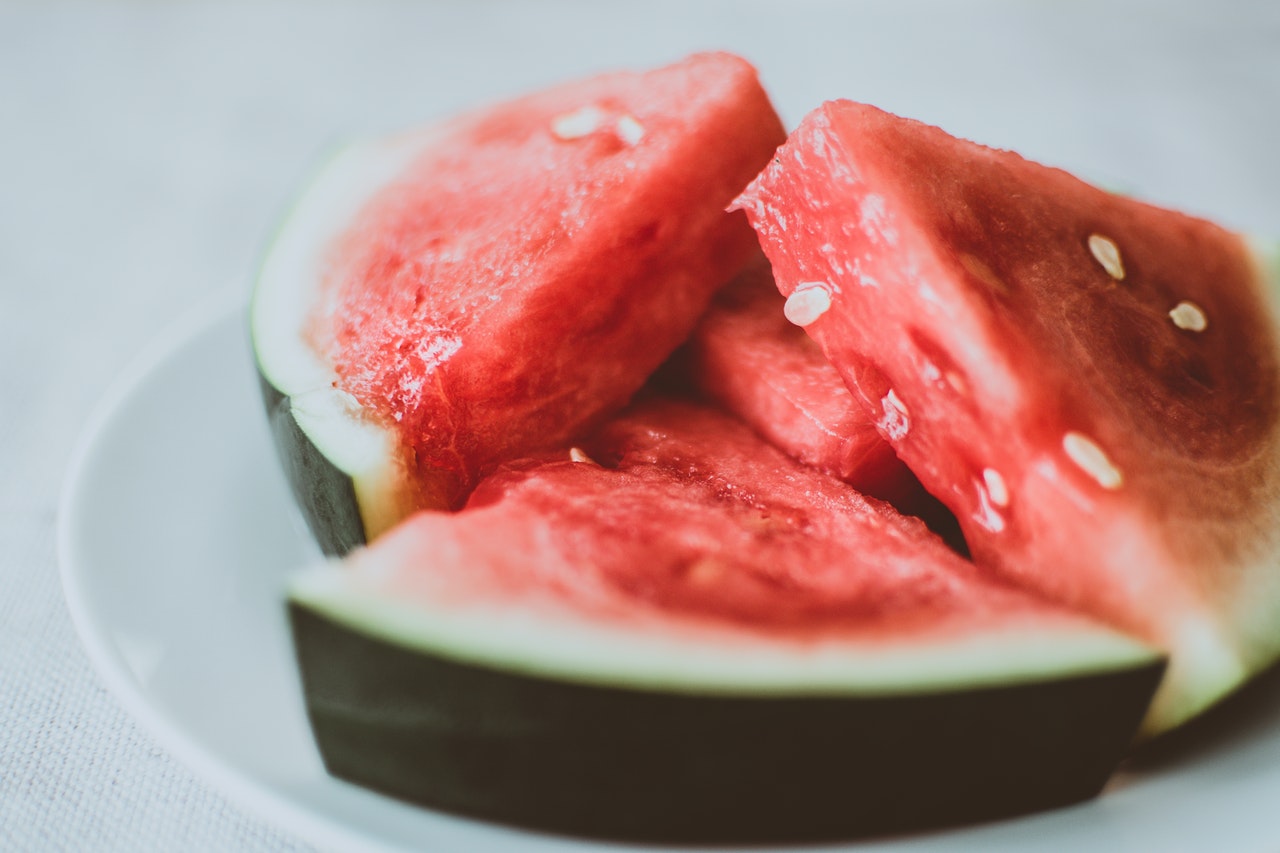- Dr.Syn’s Acupuncture Clinic301A Park Hill Dr.
Fredericksburg, VA 22401540-548-0033 Fax: 540-374-5034
Clinic Hours
Mon9am - 6pmTue9am - 6pmWedClosedThu9am - 6pmFri9am - 6pmSatClosedSunClosedAppointment Only - Please call at (540) 548-0033
-
Latest Articles:
- • Embracing the Season with Tips for a Healthy Fall •
- • Savor the Season: The Best Recipes for Fall •
- • The Best Places to See Fall Foliage in the United States •
Health Well News
Acupuncture and the Small Intestine
The small intestine is part of the gastrointestinal tract and up to 90 percent of the digestion and absorption of food occurs here. The small intestine’s main function is the absorption of minerals and nutrients from the food we ingest. It consists of three separate parts; the duodenum, the jejunum, and the ileum. The small intestine measures upwards of six to seven meters long and it has a surface area of over 200 meters. In the Traditional Chinese Medicinal system, the small intestine is much more than just its physical traits.

TCM pairs energetic meridians so that they form a complete circuit, to maintain a balance, there is always a yang and a yin meridian, which you may recognize as a black and white circular symbol. The small intestine meridian is paired with the heart meridian. Imbalances in the small intestine meridian can lead to problems such as abdominal pain, digestion issues, and also appetite problems like overeating or poor appetite. The small intestine meridian starts at the outer tip of the pinky finger and runs up the arm, over the scapula of the shoulder, continues up the neck, and ends in front of the ear. The meridian pathway allows for it to be useful in treating not just intestinal and abdominal issues, but also ailments like earaches, TMJ, shoulder, and neck pain.
The small intestine is the controller of the reception, transformation, and separation of solids and fluids. It receives food and fluids from the stomach and then transforms them by separating the pure from the impure. The pure essence is dispersed throughout the body and the impurities are flushed into the large intestine for eventual removal from the body.
The small intestine meridian is particularly sensitive to cold. Therefore eating lots of cold, raw foods can actually lead to problems in the small intestine. When excess cold invades the small intestine, there may be pain around the navel, watery diarrhea or loose stools, frequent clear urination, and loud gurgling sounds in the abdomen.
In TCM, the small intestine plays both a physical and a mental role. The mental role of the small intestine is to separate the clear thoughts from the turbid ones. This is another way the small intestine is connected to the heart in TCM. The heart houses the mind and is in charge of all of our mental health. Clear judgment depends on the ability of the small intestine to separate the pure from the impure. When there is dysfunction in the small intestine, then there may also be dysfunction in the mind.
While the small intestine may not seem as important as the heart or the kidneys, it is still an integral part of our body and as such, it should be taken care of equally as well. If you experience any abdominal or emotional issues, give us a call, and let’s schedule your first appointment! But most of all, take good care of your gastrointestinal health and your body will respond favorably.
TCM for Summer Heat
Traditional Chinese Medicine or TCM, is a medical system that dates back nearly 3,500 years. This system uses modalities like acupuncture and botanical formulas to treat ailments and keep the body balanced. TCM acknowledges not four, but five seasons.
The fifth season that differentiates from the other seasons that many go by is called Indian summer. This 5th season occurs in late August through mid-September. Each season according to TCM has a pair of organs or energetic pathways it corresponds to.

For Indian summer, these organs are the spleen and stomach which are directly responsible for digestion. The spleen also has the added function of transporting and absorbing water in the body. When the spleen is not functioning properly, the body may suffer from a buildup of dampness which can manifest as edema, digestive issues, diabetes, and even brain fog.
Indian summer tends to be the time of year when most people experience health issues such as heatstroke, although it can happen at any time of year. Here are some ways TCM can help you deal with the excessive summer heat.
ACUPUNCTURE FOR SUMMER HEAT:
As mentioned, when summer comes to an end, it tends to heat up before the transition into Fall and this is when many people experience heatstroke. This is where acupuncture comes into play. Along with regulating the body temperature, acupuncture can decrease any inflammation that may have occurred during the heatstroke episode and the acupuncture treatments can help with the digestive issues frequently accompanying heatstroke.
Acupuncture points for summer heat:
Heart 8 – Located on the palm of the hand between the pinky and ring finger. Found by making a fist, Heart 8 can be used to decrease thirst and restlessness, while also treating insomnia.
Large Intestine 11 – This point can be found bilaterally at the outer end of the elbow crease created when the arm is flexed. Large intestine 11 clears heat, drops a fever and decreases any inflammation that may be occurring due to excess heat in the body.
Pericardium 3 – Located bilaterally on the inner elbow next to the large tendon, this point is great for sunstroke or anxiety that often accompanies heatstroke.
CHINESE HERBS AND FORMULAS FOR SUMMER HEAT: Another important component of TCM is the use of herbs and herbal formulas. Many times herbs can be used alone, but there will be a more synergistic effect when single herbs are combined to make a formula. One such herb is the lotus leaf, also known as He Ye. This herb is frequently used to treat diarrhea associated with summer heat. A go-to herbal formula used to clear summer heat is Qing Luo Yin. This formula eliminates the symptoms of heatstroke, such as fever, blurry vision, and brain fog. It’s not a bad idea to keep this formula on hand when spending lots of time outside during the summer.
DIETARY RECOMMENDATIONS FOR SUMMER HEAT: Nutrition can also be very important in preventing summer heat or heatstroke. Certain foods have been used for centuries to fight summer heat. One of these is watermelon. Watermelons are 90 percent water and therefore eating it throughout the warmer summer months can help keep your core body temperature low enough that heatstroke is more preventable. Another cooling food is mint and it can be used in many summer food recipes. It is frequently added to a pitcher of water to create a nice refreshing drink that can be sipped all day long, or added atop a fruit salad consisting of strawberries, blueberries, and watermelon.
In Summer, Nourish Your Heart
Summer is a time of abundant energy, long sunshine-filled days, and warmth. In Traditional Chinese Medicine (TCM), summer has many different associations that help define it and therefore help us understand how to stay in balance with the season. To shed some light on the context of summer, its element is fire, the color is red, its emotion is joy and the governing organs are the heart and the small intestine. One way you can stay healthy this Summer is to adjust your habits in order to support your heart.

The heart is the main organ associated with the season of summer, and as such, it should be paid close attention to and nourished to remain healthy. The heart’s main function is to circulate oxygen-rich blood throughout the body. In TCM, mental activity is also associated with the heart. This mental activity is known as Shen in Chinese medicine. Often compared to our mind, the Shen goes deeper to include our thought processes, memory, consciousness, and emotional well-being.
Summer is the most appropriate time to calm the Shen and provide
it with enrichment that will last throughout the whole year.
When the fire element is balanced, the mind is calm, sleep is sound and the heart organ is strong and healthy. If the fire element is not balanced, there may be depression or an excess of joy which manifests as mania. Symptoms of an unbalanced fire element include heartburn, insomnia, agitation, nervousness, digestive upset, rashes, palpitations, and excessive perspiration.
The small intestine, the second organ associated with summer in TCM, is responsible for separating the pure from the impure, allowing the body to use the pure and dispose of the impure. When the heart is not balanced, the small intestine, the brother to the heart, will not function properly either. For many people, this manifests as digestive upset of some sort: vomiting, nausea, diarrhea, etc.
Going outside and engaging all of your senses is an easy way to nourish the heart. A technique known as “grounding” has been gaining popularity over the past decade, and science is showing that it can be very beneficial. All one has to do is walk or stand in the grass while barefoot. The energy from the earth is incredible, and it can be very healing. While you’re there, take time to listen to the sounds of nature that surround you and enjoy the fragrances of the flowers. Taking in the experience with all your senses can be very grounding and have a calming effect on the mind and body.
Probably the two most important things you can do for heart health during the summer months is drink plenty of fresh water and eat cooling foods. No matter what season of the year, water is vital. It is recommended we drink at least 64 ounces per day. Cooling foods like fruits are good at keeping fire under control, which is healthy for the whole body. Other foods that are beneficial for the summer months include peppers, eggplant, cabbage, kale, broccoli, spinach, melons of all kinds, beets, radishes, jicama, carrots, berries, pineapple, cucumbers, peaches, peppermint, grapefruit, and mushrooms.

